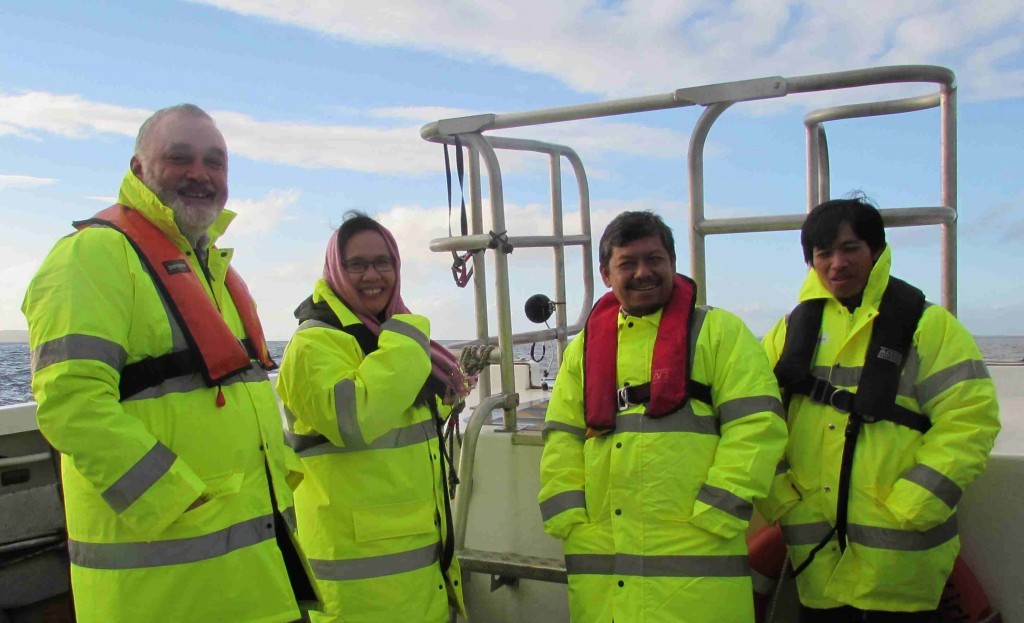
Marine renewable energy experts and senior government staff from Indonesia have visited Orkney to see what lessons they can learn from the industry in Scotland.
The delegation visited the European Marine Energy Centre (EMEC), a marine energy centre of excellence and visited the harbour facilities at Hatston Pier.
The visit was supported by the UK Foreign & Commonwealth Office, and run by Aberdeen’s Robert Gordon University and Orkney-based environmental consultancy Aquatera.
The Centre for Understanding Sustainable Practice (CUSP) at RGU, led by Dr Alan Owen, and Aquatera, led by Dr Gareth Davies, welcomed the Indonesian delegation.
Dr Owen said: “CUSP has been working closely with a number of agencies in Indonesia to help develop a pathway to creating a viable marine energy in the country so we were delighted to welcome this delegation in Scotland.
“I know they have taken a lot away from hearing of the various experiences of developing a marine renewable energy industry in Scotland and that it will help to inform the growth of renewable energy in Indonesia.”
Maritje Hutapea, from Indonisia’s Ministry of Energy and Mineral Resources (ESDM) said: “Indonesia as an archipelago has good potential for marine energy sources.
“The Ministry of Energy and Mineral Resources of Republic of Indonesia is eager to tap this potential and the visit to Scotland is part of our efforts to realise the implementation of marine energy projects in Indonesia.
“During the visit we received a lot of information and opportunities to see marine energy technology and supporting facilities. We are looking very carefully at running a pilot project on tidal current in Indonesia.”
Dr Davies, said: “There is a lot of common interest in marine energy between Indonesia and the UK and the experience of developing marine energy projects in small island communities such as Orkney can provide other island based projects with a fast track pathway to success.”
CUSP was recently awarded £183,000 from two UK Government funds to be used to help build up the Indonesia’s science and innovation capacity, as well as accelerating the implementation of marine energy in more remote areas, such as Aceh and Lombok.
Recommended for you
